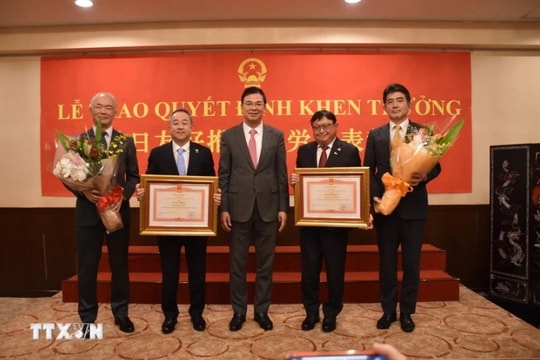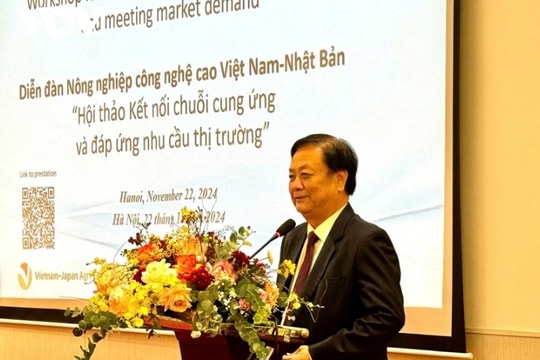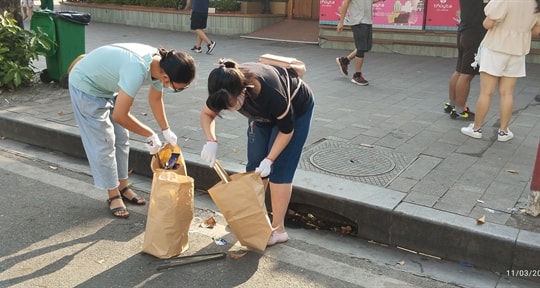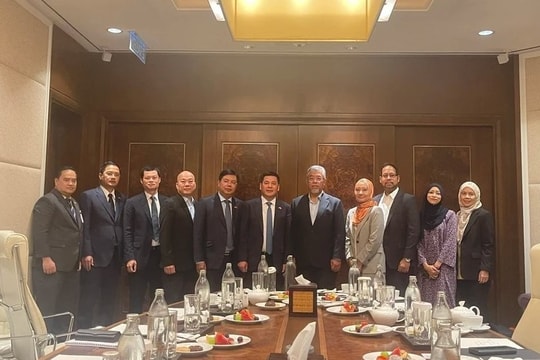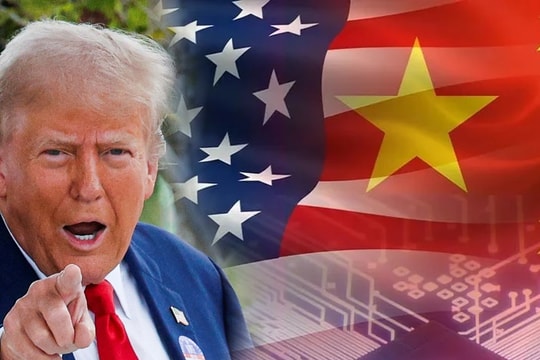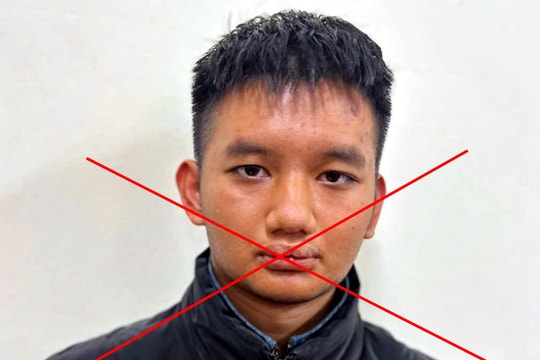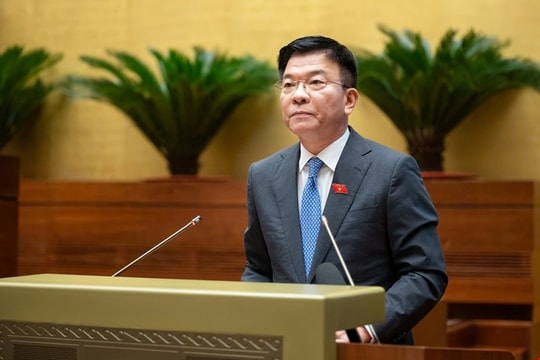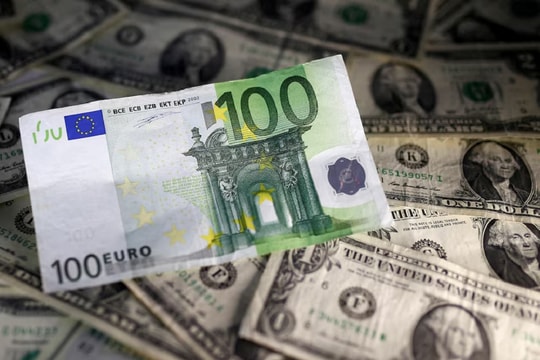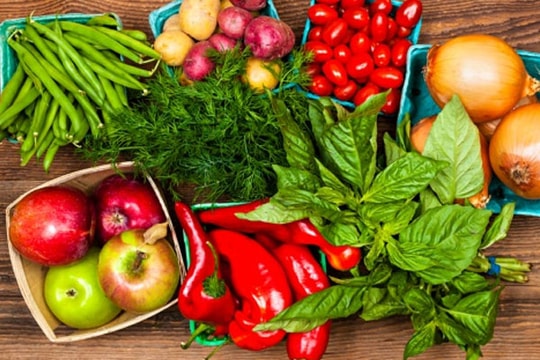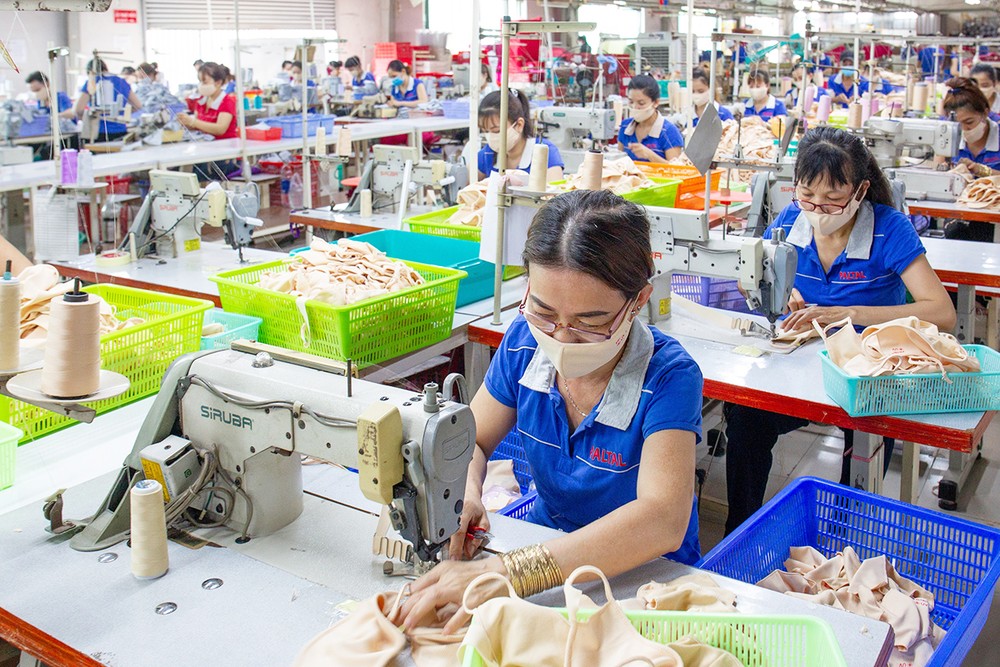
Brand, soft power for the sustainable development of businesses, will help enterprises gradually maintain their domestic market share and expand further in both domestic and global markets. Therefore, businesses make a concerted effort to fight against the brand counterfeit problem.
Challenges with counterfeit goods
Not only facing difficulties in terms of appearance and marketing capabilities, but Vietnamese products also run the risk of being eliminated from the market due to counterfeiting.
Vinamilk’s ‘Ong Tho’ condensed milk, for instance, is a flagship product exported to the Chinese market. Vo Trung Hieu, Director of International Business at Vietnam Dairy Products Joint Stock Company (Vinamilk), shared that upon entering this market, Vinamilk discovered a product with a brand very similar to Vinamilk’s ‘Ong Tho’ milk. Remarkably, the quantity of counterfeit ‘Ong Tho’ milk labels produced in a large-scale factory substantially supplied a wide range of products in the market.
To address this situation, the company had to work through a reliable business partner in China, collaborating with local authorities to investigate, collect evidence, and take decisive action against brand counterfeiting. This process required persistence from the business. Not only facing counterfeiting, but counterfeit goods also compete back, causing significant damage to customer trust and reducing legitimate business revenue.
Counterfeits of Vinamit’s dried fruit products is a typical example. As soon as the company’s products gained popularity among consumers, numerous Chinese businesses released counterfeit versions – not only selling them in China but also exporting them back to the Vietnamese market at lower prices. Vinamit filed a lawsuit for trademark infringement and won the case in China. However, despite this legal victory, the company’s products continue to face the risk of counterfeiting. The company's revenue has also been severely affected.
Statistics from the Vietnam Directorate of Market Surveillance have shown that in 2023, the market management forces nationwide handled nearly 53,000 out of 72,000 cases through inspections, an increase of 16 percent over the same period last year. The unit also transferred 170 cases with signs of crime to the investigating agency, an increase of 35 percent compared to 2022. The main violations were the trading of smuggled food, products of unknown origin, products with intellectual property violations and unsafe food.
Quality and legal standards
According to experts, to maintain Vietnamese products’ position in the foreign market with their own brands, businesses must first have global production capacity. Next, businesses ought to have a brand development strategy and the product brand must have a firm and reliable position in the domestic market before entering any international market.
In addition, businesses should have an investment strategy in terms of intellectual property rights, and trademark protection, and even have strong and comprehensive solutions to protect their own brands.
Commercial Attaché Do Ngoc Hung of the Vietnam Trade Office in the United States emphasized that in fact, it is common that many Vietnamese products with Vietnamese geographical indications are often counterfeited or registered for intellectual property rights by foreign enterprises. He took Phu Quoc fish sauce, Trung Nguyen coffee, Binh Thuan dragon fruit, and ST25 rice as examples.
Pursuing the recovery of intellectual property rights for Vietnamese product brands is quite difficult or even impossible. This is a painful lesson for many Vietnamese brands over time.
In terms of businesses, Director Vo Trung Hieu of International Business at Vinamilk said that, from a positive perspective, sales of counterfeited goods in the market prove that Vietnamese products are of high quality and are favored by consumers. Therefore, along with joining hands with relevant authorities, businesses themselves should continuously invest in the innovation of product packaging, and increasing marketing strategies and product identification information on the market. Maintaining this measure regularly is also an effective way to eliminate counterfeit goods from the market.
Specifically, for the issue of trademark infringement, businesses should be more proactive in protecting their property. Many common opinions of businesses believe that it is necessary to build a safe legal corridor to protect their brands in the domestic market as well as the export markets they are targeting. Accordingly, businesses register intellectual property rights, packaging, and labels for their products in Vietnam.
Then, according to him, businesses necessarily register intellectual property rights, packaging, and labels for their products if they export products to the markets of the United States, Japan, and especially China. The cost for this legal registration is not much, about a few thousand US dollars. However, it is very small in comparison to the cost that businesses have to spend to pursue, detect and handle counterfeited products, said Mr. Do Ngoc Hung.
Talking about the matter, Marketing Director Vuong Ngoc Dung of Saigon Cosmetics Joint Stock Company believed that if only businesses protect their product brands, it is not enough. It is necessary to have the active participation of the authorities in regularly inspecting, checking and severely punishing individuals and organizations that have violated genuine Vietnamese brands.



